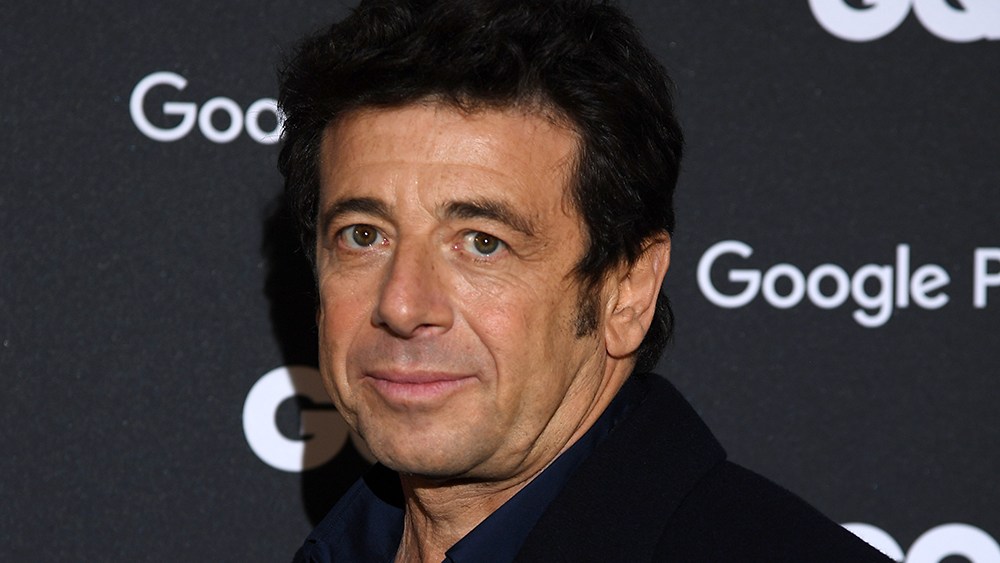Introduction
The recent spate of wildfires that have swept through California has had a devastating impact on many communities, particularly in the picturesque Pacific Palisades neighborhood of Los Angeles. One of the notable figures affected by this disaster is the renowned French singer and actor Patrick Bruel, who has lost his home to the relentless flames that have ravaged the area since last week. This incident not only highlights the destructive force of natural disasters but also brings to light the personal struggles faced by those who lose their homes in such circumstances.
A New Life in Pacific Palisades
Patrick Bruel moved to Pacific Palisades eight years ago, after his two sons, Leon and Oscar, relocated to the area with their mother, Amanda Sthers, a celebrated novelist and filmmaker. Bruel’s decision to settle in this beautiful community was further encouraged by the late French music icon Johnny Hallyday, who resided nearby. Tragically, both Bruel’s home and Hallyday’s family residence have been consumed by the recent wildfires, underscoring a profound loss for the families involved.
Emotional Repercussions of Loss
In an interview with Variety, Bruel expressed deep sorrow over the loss of his house, describing it as a “small and beautiful village” where he felt incredibly comfortable. The destruction of his home has led to an overwhelming sense of grief, as the memories associated with the property linger in his mind. Bruel’s son was in the midst of leaving the area just before the wildfire struck, highlighting the urgency of decisions made in moments of crisis.
Memories Beyond Monetary Value
Bruel reflects on the nature of the homes lost in the fire, emphasizing that media narratives often focus on the high-profile status of celebrities rather than the human stories intertwined with these losses. “So much of the media focuses on all the famous people and how much their homes were worth,” he stated, reminding us that behind every headline are lives filled with individual experiences and valuable memories. This loss transcends monetary worth; it is deeply personal and multifaceted.
The Wider Impact of Displacement
As wildfires continue to disrupt lives, Bruel pointed out the staggering number of individuals displaced—approximately 300,000 people have been affected. Many of these individuals face financial hardship, as some insurance companies have opted to cancel policies due to risks associated with wildfires. This leaves countless families grappling with the financial burden of rebuilding their lives without the safety net they previously had. Bruel shared his concern for the plights of families who have lost not just their homes but their sense of normalcy.
Memory and Mourning
Bruel vividly recalled a poignant image he encountered in the media, depicting a devastated mother explaining to her young daughter the painful reality of losing her cherished toys and home. It resonates with Bruel, who understands the depth of emotional trauma that accompanies such losses. His children, he admitted, are particularly saddened by the abruptness of the situation, missing the opportunity to say goodbye to the memories within their home.
Reflection and Resilience
In the face of this calamity, Bruel reflects on the psychological burden associated with the loss of a beloved space. He shared that their home was more than just a structure; it was an anchor, a refuge filled with memories and the artful drawings of his son, Oscar. Despite the destruction, Bruel acknowledges that the timeline of the disaster could have been much worse, illustrating the unpredictable nature of life and survival in the face of catastrophic events.
Conclusion
The devastating wildfires in California have drawn attention not only to the physical destruction wrought in communities like Pacific Palisades but also to the emotional toll on families who have lost their homes and livelihoods. Patrick Bruel’s experience is emblematic of the challenges faced by many: a profound sense of loss, the disruption of childhood memories, and the arduous journey toward healing and rebuilding. It is crucial to recognize the human stories behind these headlines, fostering a greater understanding of the impact of natural disasters on individuals and communities.
FAQs
What caused the wildfires in Pacific Palisades?
The exact causes of the wildfires can vary, including factors such as dry weather, high winds, and human activities that may ignite fires. Each wildfire’s specific origin is typically investigated by authorities.
How can I help those affected by the wildfires?
Individuals can assist affected communities by donating to local charities, participating in fundraising events, or volunteering for relief organizations that aid in recovery efforts.
What should families do if they are evacuated due to wildfires?
Families should follow evacuation orders promptly, gather essential documents and belongings, secure their pets, and head to designated evacuation centers. Staying informed through local news and emergency services is crucial.
What resources are available for those who lost their homes?
Affected individuals can contact local relief organizations for assistance, which may provide shelter, food, and resources for rebuilding. Government agencies often offer disaster relief services and support for those impacted.
How can we better prepare for future wildfires?
Homeowners can implement fire-resistant landscaping techniques, maintain defensible space around their homes, and create emergency plans to prepare for evacuation in the event of a wildfire. Regularly reviewing insurance policies for adequacy is also advisable.

